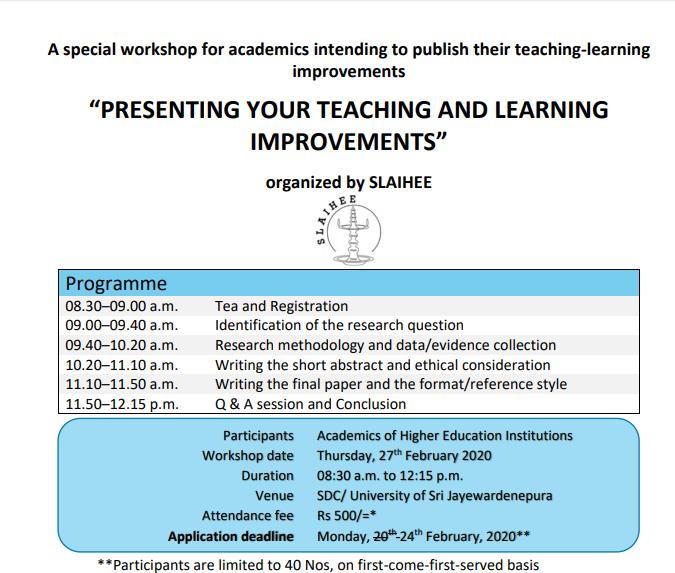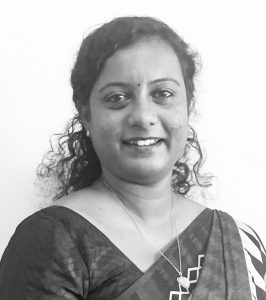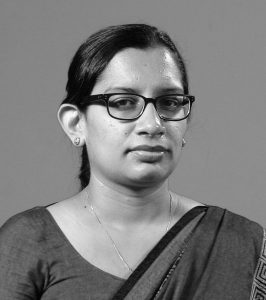
Author: slaihee
15th Conference 2019
The 15th Annual SLAIHEE conference was held on the 26th of July, 2019 at the Department of Transport and Logistics Management, University of Moratuwa. The theme this year was “Fostering the Demand for Quality Teaching and Learning in Higher education”. Dr. D.P. Chandrasekara, the director of the Staff Development Centre, University of Moratuwa, welcomed the gathering. Professor Jayadeva Uyangoda graced the conference as the keynote speaker. The topic of his address was “The Need to Retrieve an Abandoned Value in Higher Education – Intellectual Integrity”. Following the keynote speech, the recipients of the Dr Shrinika Weerakoon memorial award received their certificates from Professor Kapila Perera, Vice Chancellor, University of Moratuwa.
This year, sixteen (16) peer reviewed papers were presented; these can be downloaded from [here]. The workshop “How lecturers change ways of thinking and practice to foster quality teaching and learning in higher education” was offered to all conference participants. This was conducted jointly by Professor S. U. K. Ekaratne and the three Dr. Shrinika Weerakoon memorial award winners. This workshop provided participants with a sound insight to identify and implement incremental changes to improve their courses.
Download 2019 Conference Keynote Speech by Prof. Jayadeva Uyangoda
2018 awardees
Full papers are at http://www.slaihee.org/wp-content/uploads/2017/08/Abstract-book-2018.pdf
 |
 |
 |
| Ms. Abarnah Kirupananda
Informatics Institute of Technology, Colombo 6, Sri Lanka. |
Ms. Prabhashrini Dhanushika
Department of Computational Mathematics, Faculty of Information Technology, University of Moratuwa, Sri Lanka. |
Dr. Surangika Ranathunga
Department of Computer Science and Engineering University of Moratuwa, Sri Lanka. |
| Use of a scaffold flipped classroom teaching approach to develop post-millennials as effective self-learners
Background for teaching changes: Post millennials are a group that uses internet, social media and email facilities from school going age. It is reported that they have a considerably less attention span, less focus, and have greater expectations, while wanting to be early starters, and importantly challenge teachers when they commence their higher education. A majority of such learners do not prefer traditional methods of learning. Having experienced this first hand, I was keen to explore whether changing to a flipped classroom would create and interest among them to learn and hence to fulfill their learning needs. I have combined the flipped classroom with lesson breaks in a first-year computer programming course with 20 students. It turned out to be a success, where it helped them to research on prescribed topics before a lecture, and to make them actively engage during the class. Even though students did not like it at the beginning, later them seem to enjoy this interaction. Student feedback showed agreement as they viewed the change positively, meeting their learning needs. I have shared these methods with my colleagues and have motivated them also to follow interactive learning techniques to make the learning process more enjoyable. Once I started working on this area, I got interested towards it and started exploring more. Now I am continuing to practice these methods and I am implementing different techniques to give learners a better learning experience.
|
Development of a Teaching Philosophy to meet and improve Teaching Practices suited for effecting positive change
Background for teaching changes: Higher Education (HE) teaching to meet today’s needs and to deliver quality learning, need a mind-set change. Every teacher aspires to be an effective teacher, and some may still hold the view that transmission of knowledge can make learners competent. There are many aspects that should be considered during the development and the delivery of courses. As a novice teacher, I found it to be a huge challenge to introduce such changes, while maintaining learner interactions. Having followed a teaching development course, I now could easily implement improvements while relating to documented prior knowledge given in the literature. Therefore, in this paper, I have explored the use of Bloom’s Affective learning taxonomy to design and integrate a course to a holistic teaching philosophy (TP), which would deliver the required teaching quality and also self-satisfaction. Curriculum and course planning should be grounded on a TP. TPs should be flexible and may evolve when new experiences and knowledge are gained. Currently, I am researching on how to improve learning skills among weak students. In this regard, I am engaging with such learners to discover the root of such weaknesses, to address this issue. I strongly believe that we academics should be effective in producing competent learners via the courses we teach, while not confining ourselves in transmitting information. |
Developing Active Explorers from Listeners: Encouraging engineering students to explore by asking Questions during Lectures
Background for teaching changes: Moving students from lower order thinking skills (LOTS) to develop as graduates with higher order learning and inquiry skills is challenging. The use of questioning strategies in class could develop students’ elaborative interrogation skills, during this transformation. However, in the South Asian culture, many students hesitate to ask questions at lectures due to lack of confidence in what they have just learnt, and due to poor English communication skills. As a lecturer, I found this silence very frustrating, and hence wanted to make a change. Therefore I implemented two supporting actions in my Semester 2 engineering course, namely, to allow students to write their questions on a piece of paper and to pass it to the lecturer; and to move around the classroom so that they gain access to ask questions in private. The effectiveness of these interventions were evaluated using direct observations and through a questionnaire. The initial opportunity to forward written queries helped later to have a dialogue with them, when I moved around in class. Motivated by this success, I now have introduced lecture breaks where they could seek direct feedback from me, especially when a new concept is introduced. These results clearly indicate the importance of creating a discursive environment for students to ask questions. I have encouraged my colleagues to try out this intervention providing an opportunity to seek clarifications later. |
Award
 SLAIHEE wishes to announce the “Dr Shrinika Weerakoon Memorial Award for the Best Paper in Changing Higher Education Student Skills”. Awardees will first be selected at the 2018 Annual SLAIHEE Conference, and annually thereafter at each conference.
SLAIHEE wishes to announce the “Dr Shrinika Weerakoon Memorial Award for the Best Paper in Changing Higher Education Student Skills”. Awardees will first be selected at the 2018 Annual SLAIHEE Conference, and annually thereafter at each conference.
BACKDROP OF AWARD
The above award is to honour the memory of Dr Shrinika Weerakoon, whom we unfortunately lost with her untimely death in December 2017 while serving as Director of the Staff Development Centre (SDC) of the University of Colombo. Numerous academics tell of how she transformed their lives, primarily through the insights that she gave them into Reflective Practice, teaching improvements and life itself, mainly while teaching the Certificate in Teaching in Higher Education (CTHE) course, Making Teaching Effective (MaTE) course and other activities. These other activities included conducting numerous staff training workshops and also co-teaching the Accreditation of Senior Teachers in Higher Education (ASTHE) course at her Centre. She also trained administrative and clerical staff of universities and those of the SDC itself. She kept the Centre’s activities vibrantly alive, attracting academics and other categories of staff from all universities across Sri Lanka to its training programmes. Dr Shrinika also steered the SDC courses successfully through several iterations of international accreditation and her valued reflections are recorded on the SEDA, UK web pages.
She also formed and guided SLAIHEE as its Founder-Secretary and, later, as President. In these positions, as well as Chair of several annual conferences and as Executive Committee Member, her gentle persuasive nature made it possible to stamp on us the continuing need to review and bring about the quality enhancement of Higher Education in Sri Lanka.
Apart from contributing to staff training and development activities, she published widely with Sri Lankan as well as overseas collaborators. Her last paper submitted to an international journal was published shortly after her death.
She remained modest and humble, despite the many qualifications, recognitions and experiences she gained in several countries, such as her BSc, MSc, MBA(Perth), DBA (Bath, UK), SEDA Accredited Teacher, ASTHE. She was highly valued both in Sri Lanka and overseas, such as when she was Senior Fulbright Fellow at IUPUI, USA and a member of the International Consortium for Educational Development.
It was Dr Shrinika’s personal commitment which ensured that the SDC at the University of Colombo (established in 1997) continued to be highly recognised both nationally and internationally, not allowing for its high quality to be compromised by external pressures. Her skills at convincingly communicating what was the ‘right conduct’ and ‘right view’ to those in the university management and elsewhere helped. Her strong belief and practice of Buddhist principles helped her to successfully ‘swim against the current’ (‘Patisothagami’ characteristic) with ‘right resolve’, enabling her to stand steadfast to unwaveringly uphold the quality, standards and prestige that had been the hallmark of the Colombo SDC for 20 years.
To many who knew her, she was a trusted and reliable colleague, a friend, a guide, a rare role model, a change agent and someone who always found time to be there for you. In all that she did, Dr Shrinika epitomised a life that: “what you leave behind is not what is engraved in stone monuments, but what is woven into the lives of others” (Pericles). Dr Shrinika, as she was fondly called, thus became an irreplaceable Higher Educational Developer.
SLAIHEE, along with the higher education community who knew her, pay tribute to Dr Shrinika’s unparalleled services and everlasting memory by the initiation of this award, linking it to skills development, an aspect that was close to her heart and to which she dedicated her life.
AWARD TIMING & SELECTION CRITERIA: This Certificate of Award will be awarded at each SLAIHEE Annual Conference, preceded by the announcement of winner on the SLAIHEE web site. The award will usually be made to a single awardee, based on selection criteria that include impact on student skill development, on peers’ perceptions on the usefulness of methodology to their own practice, the quality in delivery and in writing, and on the effective integration of relevant scholarship.
THE AWARD WILL INCLUDE the following;
- A Certificate of Award
- Complimentary Full Membership for 2 subsequent years of SLAIHEE
- Complimentary Conference registration at following year’s conference
- Special Plenary Presentation slot at following year’s conference to tell conference participants, on how awardees were motivated to begin their teaching changes and on related activities awardees conducted over the year between the two SLAIHEE Conferences
- Profiling on SLAIHEE web-site
- Support by SLAIHEE to be associated with SLAIHEE’s staff development activities
14th Conference 2018
The 14th Conference of SLAIHEE was held, with over 100 enthusiastic participants, at the Center for Excellence in Teaching, Learning and Innovation (CETLI) of the Sri Lanka Technological Campus (SLTC), TRACE Expert City, Colombo 10, Sri Lanka on 26th July 2018.The Keynote Speaker was Professor P.S.M. Guneratne (Vice-Chariman, UGC) who delivered a very inspiring keynote address. Very lively discussions took place following the keynote and the 19 papers that were presented.
CETLI has been set up to improve skills and performances of educators across the education sector, and will strive to enhance quality and effectiveness, inducing modern teaching techniques and principles through a series of courses, workshops, conferences and one-on-one communication. 2018 conference aimed to look back on improvements made towards skilling graduates, and was therefore organised under the theme “Creating graduates for positive change: the evidence of changed perceptions and practices”.
Contact us
Newsletters
Newsletter May 2006 (137KB) Contains the abstracts of the 2nd SDC-SLAIHEE Joint Conference
Newsletter Apr 2007 (44KB) Contains the abstracts of the 3rd SDC-SLAIHEE Joint Conference
Newsletter Jul 2007 (86KB) Contains the abstracts of the 1st SDC-SLAIHEE Joint ConferenceNewsletter, 2022 SLAIHEE
Newsletter May 2008 (44KB) Contains the abstracts of the 4th SDC-SLAIHEE Joint Conference
Newsletter Jul 2009 (32KB) Contains the abstracts of the 5th SDC-SLAIHEE Joint Conference
13th Conference 2017
The 13th Joint Conference of the SDC & SLAIHEE was held at the Open University of Sri Lanka on 23th June 2017. It was organized jointly by the Staff Development Centre (SDC) of the Open University of Sri Lanka and SLAIHEE.
The conference theme was ‘Lectures & Beyond: Delivering Higher Education through Learning Experiences’. The conference was inaugurated by Dr. Prasanna Ratnaweera, President of SLAIHEE. The keynote address was delivered by Prof. Uma Coomaraswamy, Director, Center for Gender Equity Equality, University Grants Commission. Prof. Anbahan Ariadurai, Vice-Chancellor, The Open University of Sri Lanka graced the occasion as the Guest of Honour. Continue reading “13th Conference 2017″
12th Conference 2016
The 12th Joint Conference of the SDC & SLAIHEE was held at the Wayamba University of Sri Lanka on 17th June 2016. It was organized jointly by the Staff Development Centre (SDC) of Wayamba University and SLAIHEE. Continue reading “12th Conference 2016″
11th Conference 2015
The eleventh annual conference jointly organised by the SDC, University of Colombo, and SLAIHEE was held at University of Colombo on Friday 26th June 2015. The SDC & SLAIHEE joint conference theme was “Outcome-based higher education: achievements, challenges and potential”. Continue reading “11th Conference 2015″
